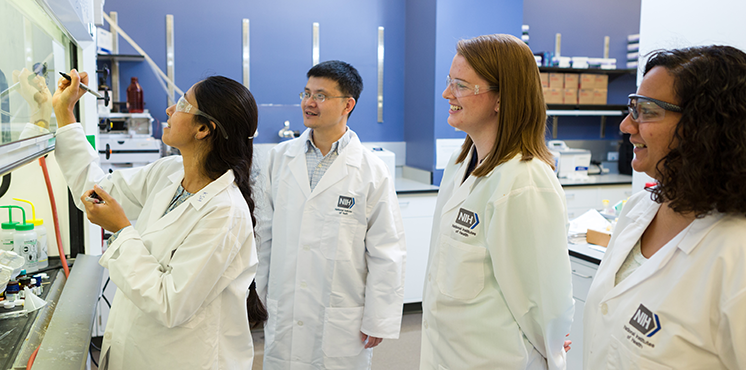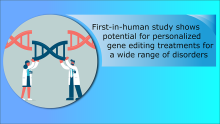Our Impact on Rare Diseases
NCATS is the heart of rare diseases research at NIH. We speed the development of new rare disease treatments by focusing on approaches that can address more than one disease at a time.
Delivering Hope for Rare Diseases
There are more than 10,000 known rare diseases and only a few hundred have safe, effective treatments. In the United States, rare diseases affect millions of people.
We are working hard to address the significant and often unmet needs of those affected by rare diseases. Through our research programs and other activities, we partner with patients, advocates, clinicians and researchers. Together, we have moved promising therapies into clinical trials, advanced therapeutic development tools and technologies, created widely used informational resources, and raised awareness of the rare disease public health challenge.
Our research priorities include shortening the time to diagnosis, spurring multiple treatments at a time, and making it easier and more efficient for scientists to discover and develop rare disease therapies. Because most rare diseases are genetic, we are especially focused on developing gene-targeted approaches for treating groups of rare diseases. We are also leveraging newer approaches, such as genetic analysis and machine learning, to help health care providers diagnose people with rare diseases and help people with rare diseases access the most current and reliable information.
Impact Stories
New FDA Designations May Jumpstart Gene Therapy Development

New FDA designations granted to NCATS for rare disease therapies provide financial incentives for companies to further develop treatments.
NCATS Helped Develop a Gene Therapy for a Rare Brain Disorder

NCATS’ Therapeutics for Rare and Neglected Diseases (TRND) program helped develop a recently approved gene therapy for a rare genetic brain disorder.
Rare Diseases Research Activities
We are addressing the public health challenges posed by rare diseases through a variety of collaborative research efforts.

Bespoke Gene Therapy Consortium
The Bespoke Gene Therapy Consortium (BGTC) focuses on developing platforms and standards to speed the development and delivery of gene therapies for rare diseases.

Therapeutics for Rare and Neglected Diseases (TRND)
The TRND program moves basic research discoveries in the lab closer to becoming new drugs.

Rare Diseases Clinical Research Network (RDCRN)
The RDCRN brings scientists together with rare disease organizations to study more than 200 rare diseases at sites across the country.
Rare Diseases Research News

Infant with Rare, Incurable Disease is First to Successfully Receive Personalized Gene Therapy Treatment
May 28, 2025 - NCATS News
- Our Impact on Rare Diseases
- Somatic Cell Genome Editing (SCGE)
NIH-supported gene-editing platform lays groundwork to rapidly develop treatments for other rare genetic diseases.
Read ArticleHealth Insurance CEO Pulls Back Curtain on Prior Auth Reform
July 3, 2025 - Media Coverage
- Our Impact on Rare Diseases
Research Moves Slowly. Rare Diseases Don’t — So Patients Aren’t Waiting
June 28, 2025 - Media Coverage
- Our Impact on Rare Diseases
Infant with Rare, Incurable Disease is First to Successfully Receive Personalized Gene Therapy Treatment
May 28, 2025 - NCATS News
- Our Impact on Rare Diseases
- Somatic Cell Genome Editing (SCGE)
NIH-supported gene-editing platform lays groundwork to rapidly develop treatments for other rare genetic diseases.



